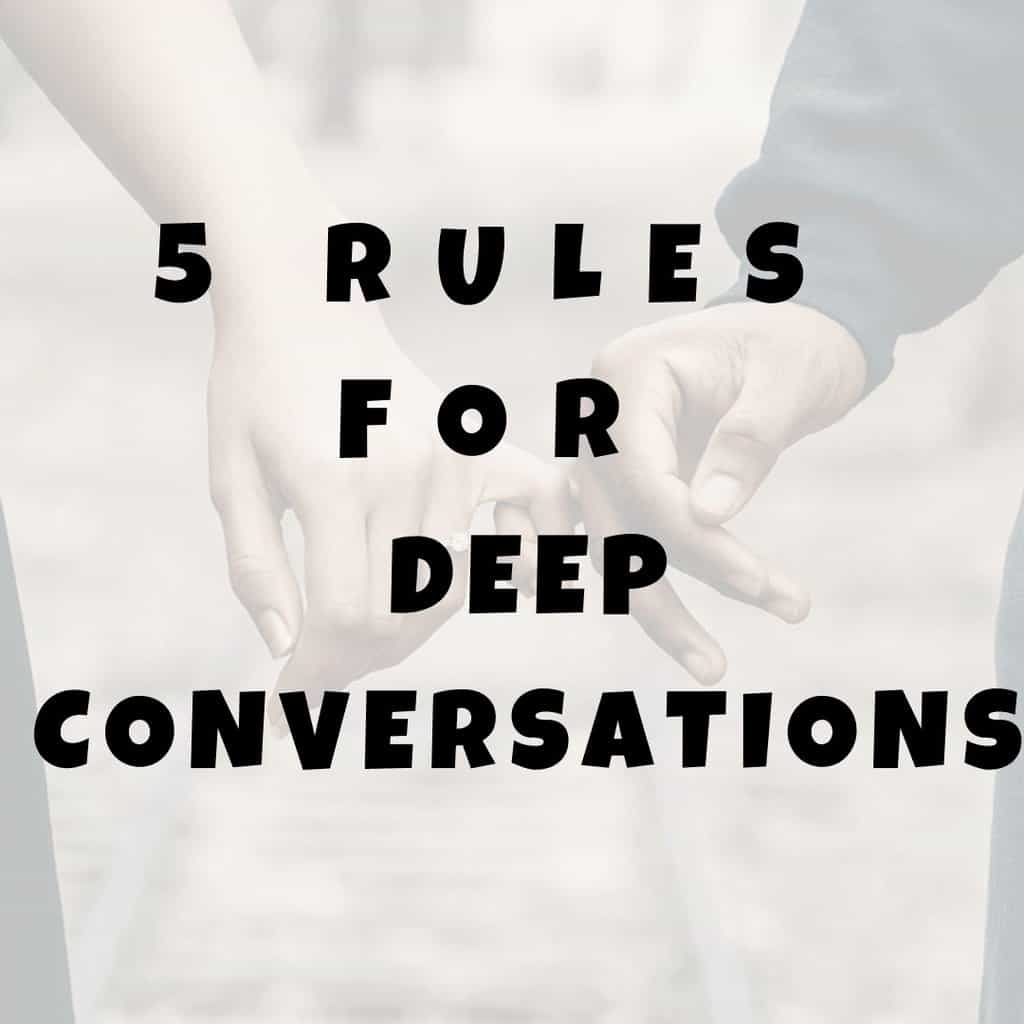Podcast: Play in new window | Download
Subscribe: Apple Podcasts | Spotify | Amazon Music | RSS | More
Humans are Wired to Connect
Relationships are a necessary piece of our human existence. From the moment we are born, we strive to connect and attach with the other beings in our lives. In cavewomen days, it was necessary for us to have relationships with the members of our clan in order to survive. If we didn’t fit into the group, we literally would die.
Even though we’re not cavewomen anymore we are still driven to connect. From the moment we are born we to connect and attach with other beings. We want to be heard and understood by the people around us. This is a good thing. Our relationships bring us much joy and contentment. They are one of the 5 Pillars of Wellness and thus, something to be considered and strengthened.
The Quality of Our Relationships Affect Our Health
In an ideal world, the relationships we’re in would be healthy, supportive, and loving. In reality, many of our relationships are codependent, enmeshed, or emotionally immature. Why? Because we don’t know what we don’t know. Schools do not yet teach courses on healthy relationships. Parents are not given courses before having kids on how to model healthy relationships nor how to form healthy attachment with their children.
Further, relationships are one of the trickier pieces of our wellness because they are the only pillar that requires another person. With the other pillars (sleep, exercise, soul care, and eating), we control how we manage our wellness. With relationships, we are in relation with another human and so, need to interact and communicate to insure our wellness. Hear that? Communication must happen. So many of the problems that my clients present with or that have come up in my past are because of communication. Either a lack of communication or that it’s being done in an aggressive, unhelpful way. One of my most popular blogs details the three crucial guideposts of healthy relationships. If you need a refresher, please re-read or re-watch it here. It’s short but powerful.
Have Great Conversations
In order to have deep connected relationships we get to have deep connected conversations with those we’re in relationship with. In thriving relationships, you’ll have plenty of opportunities for deep or difficult conversations and this is a good thing. Expect it as that means you’re growing, striving, and moving into that next great level. When a topic comes up for discussion, instead of resisting it or putting it of, follow these 5 steps to strengthen the connection in your important relationships.
1) Get Clear:
What do you want to talk about? What is the intent of your conversation? How do you want to feel after the conversation? If you’re anything like me, you often skip this step and just open our mouth. I encourage you to view this step as one of the most important steps. When I pause and ask myself: “What do you want to talk about Susie?” the conversation flows much better. Here are some other questions to ask yourself:
What result do you want?
What’s the best case result from this conversation?
What’s the worst?
What’s realistic?
This is an important time to remind yourself that there is no winning or losing in healthy committed relationships. 
2)Timing:
Choose a time to have a conversation where both of you are calm and neutral. This is usually not when whatever topic you want to discuss just came up. This is also not past 9 PM at night. My mantra: “No deep discussions after 9 PM.” Our brain is tired, it is not a time when our brain is looking for solutions. Check in with your physical self by asking questions such as: “Is my chest tight? Am I clenching my jaw? Is my brow furrowed? How deeply can I breathe?” These are all signs that the fight or flight part of your brain is triggered and that the conversation needs to wait.
3) Confirm Timing:
Yes, the other person matters. This means you ask the other person if this is a good time to talk about what you want to talk about. This is necessary for many reasons. Two main ones are: (1) You might think you’re both neutral and calm but maybe the other person isn’t feeling as calm, or (2) the other person is calm but is not ready to deep dive into what you want to talk about. What to do? Ask. When in doubt, shout it out: “I’d like to talk to you about some things that are going on with our kids. Are you open to talking about it now?” or “I’d like your input on some pieces of our relationship, is now a good time to talk?”. Work with the other person to set a time that will work for both of you in the near future (within 24 hours if you live with the person).
4) Start Soft:
Marriage and relationship expert Dr. John Gottman encourages couples to begin with what he calls, a soft opening. Do you start your conversation accusatory? Do you start it calmly? I invite you to think through how you’ll start the conversation. I encourage clients to stand in front of a mirror and practice.
“No matter how ‘at fault’ you think your partner is, approaching them with criticism or accusations is not productive.”
I can determine the outcome of your discussion based on the first three minutes of your conversation. Are you blaming? Are you owning your responsibility? Are you looking to win? (spoiler alert: there is no win or lose) When you start the conversation gently, you communicate respect and cause both of you to feel positive about themselves and your relationship. This is a great time to remind yourself of your answers to the first step: What is my intent and how do I want to feel after this conversation? How do I want to act as a spouse, parent, co-worker, or daughter in this conversation?
5) Own Your Sh*t:
Guess what? We also skip over this step. However, it is imperative for you to be aware and open to seeing what your role is in whatever you’re talking about. How have you contributed to what is going on? Speak it out. I like thinking of relationships as having two sides of the road. Keep your side clean.
- To your husband this can sound like: “Last night I jumped down your throat when you asked what we were doing with holiday gifts. I’m sorry. I realize I’ve been thinking a lot about it but haven’t brought it up to discuss with you much and was reactive and feeling victim-y. Can we talk about gifts now?”
- To your mother-in-law this can sound like: “Hey, I would enjoy helping out with the holiday meal. I know you said you didn’t want me to bring anything so I’m circling back to see why. If it’s that you have a certain theme or idea, is there a small way I can help in the celebration?”
- To your parents this can sound like: “I’m sorry I haven’t been returning your texts or calls lately. I didn’t like how you spoke to me in front of my kids the other day yet avoiding you was not the mature thing to do.”
This is also where the thought model comes in. In the above conversations, it’s important to manage your mind based on their response. If in the case of your husband, he says he doesn’t want to discuss gifts now, back to step #3 and set a time when you can discuss it. He’s allowed his emotional response to your emotional reaction the night before an he may not be ready to calmly communicate with you right then. In the case of your mother-in-law, she may stand her ground and say she doesn’t want any help whatsoever, not even you bringing napkins. In that case, you get to journal on what you’re making that mean and decide your path forward.
It is super crucial that you keep in mind the goal of your conversation. You are not looking for a medal or a “I won” ribbon. Keep bringing your mind back to what your intent is with this conversation. Hopefully it is to come to some sort of an agreement on how to move forward or to compromise. You have to realize that, if you think you’re right, the other person thinks they’re just as right. There’s no need to dive in to right or wrong, you are looking to move forward.
In the end, all productive conversations include certain components. Each party is an emotional adult, they take ownership for their actions and move towards the other person with the intent to understand their experience. They drop the drama. There’s no need to re-hash things from the past or threaten future actions. Lower your guard, come together, and communicate. We are meant to connect with others and it is up to us to do the connecting from an emotionally responsible, adult place. Let’s go Warriors, we’ve got this.
Make sure you’ve signed up for my weekly Wellness newsletter. I am launching an exciting, new program in the new year and want you to have all the early sign up details and pricing deals!
Together we rise. You were not meant to do this alone, dear warrior.






Links to foc
if you credit me, for sure!